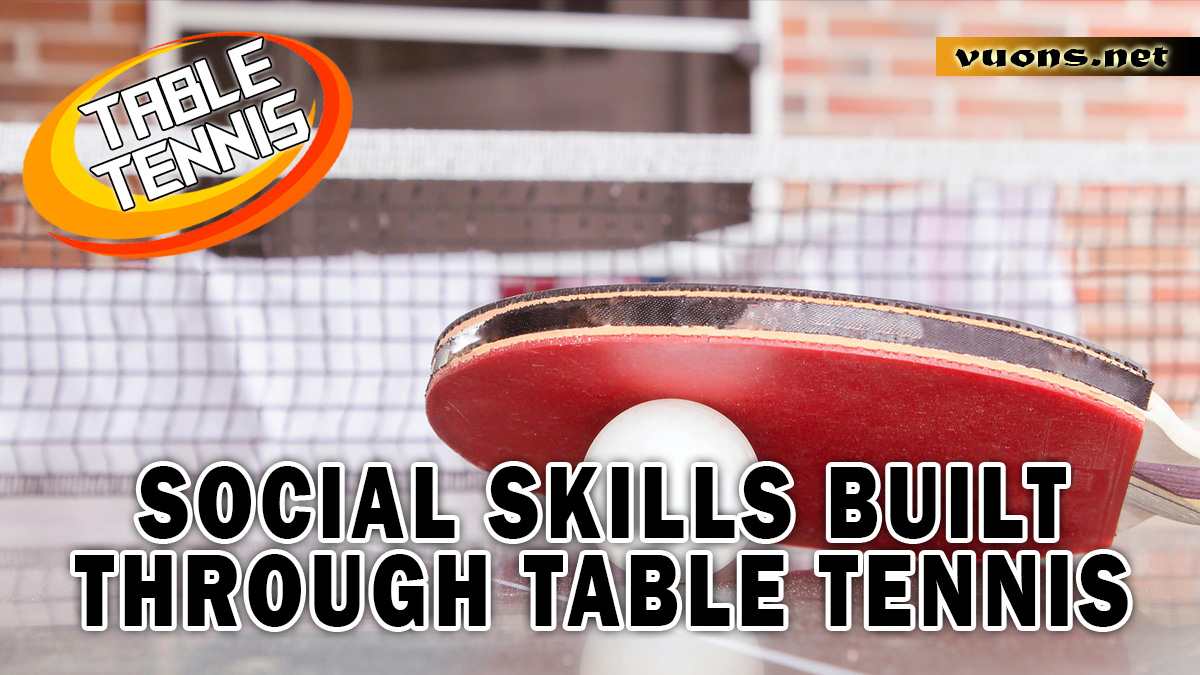Table Tennis: A Simple Sport with Amazing Benefits
A Brief History of Table Tennis and Its Popularity in the World
Table tennis, also known as ping pong, has a long history that began in the late 19th century in England. Originally played as an indoor pastime by the nobility, table tennis soon developed into a popular Sport throughout the world. Initially using simple tools such as books as rackets and bottle corks as balls, table tennis transformed into a sport with more standardized rules and equipment.
In 1926, the International Table Tennis Federation (ITTF) was founded, strengthening the sport’s position as an official competitive discipline. Since then, international tournaments have begun to appear, and table tennis has become increasingly popular, especially in Asian countries such as China, Japan and South Korea. These countries dominate the sport, with the world’s top players hailing from these regions.
The popularity of table tennis in the world is driven by its ease of playing in limited spaces and the low cost of the equipment required. Apart from being a fun recreational sport, table tennis has also been recognized as an Olympic sport since 1988. This has further increased its global exposure and introduced the sport to a wider audience.
Today, table tennis is not only played in professional competitions, but also in schools, homes and community centers. This sport offers physical and mental benefits and builds strong social relationships, making it an ideal choice for all ages. Its rich history and worldwide popularity mean that table tennis will continue to be one of the most popular sports in various parts of the world.
Physical Health Benefits of Playing Table Tennis
Table tennis is a sport that looks simple, but provides many physical health benefits for the players. One of the main benefits is improving hand-eye coordination. Fast movements when hitting the ball train the body’s reflexes and responses, which are useful for improving the sharpness of daily reflexes.
Additionally, playing table tennis helps burn calories. Even though it is not as intense as running or cycling, this activity is still effective in burning calories because it involves repetitive movements, changes in direction and constant speed. Playing for 30 minutes can burn around 200-300 calories, depending on the intensity of the game.
Table tennis is also very good for improving balance and body flexibility. When playing, players must often move quickly from one side of the table to another, exercising the leg and back muscles. This helps improve posture and increase agility. Additionally, this game also demands flexibility of the wrists, arms, and hips, which provides a thorough workout for the body.
This sport is also low-impact, so it is safe for all ages, even for those with joint or muscle problems. Because it doesn’t put much stress on the joints, table tennis can be a good option for staying active without the risk of major injury.
With the various physical benefits it offers, table tennis is a sport that is both fun and beneficial for your health. This makes it an ideal choice for anyone who wants to keep fit in a way that is fun and not too physically demanding.
Hone Concentration and Reflexes with Fast Games
Table tennis is known as a sport that demands high speed and full concentration. In this game, the ball moves very quickly on the table, so players must be able to react in a matter of seconds. This is what makes table tennis effective in honing reflexes and mental focus.
One of the main aspects in table tennis is the ability to predict the movement of the opponent and the ball. When the ball is hit, the player must immediately read the direction and speed of the ball. This involves high concentration, because the movement of the ball can change quickly due to hitting techniques such as spin or smash. This skill helps improve focus, which is beneficial not only in sports, but also in everyday activities.
Besides that, body reflexes are trained intensely in every game. Quick movements from one side of the table to another get the body used to responding to stimuli efficiently. Hands, eyes and feet work in sync to hit the ball on time. The more often someone plays, the sharper their reflexes become. This is also useful in improving fine motor skills.
Fast games like this not only train physical abilities, but also involve sharp thinking strategies. Players must quickly make decisions about the hitting technique used, whether to attack or defend. This situation increases the brain’s ability to process information quickly and accurately.
With its various advantages, table tennis is one of the best sports for training concentration and reflexes. This sport is not only fun, but also provides a refreshing mental and physical challenge.
Table Tennis as a Recreational and Competitive Sport
Table tennis is a sport that can be enjoyed on many levels, both as a recreational activity and in the competitive arena. As a recreational sport, table tennis is popular due to its simplicity and ease of playing. Requiring only a table, ball and bets, this sport can be played at home, school or community center. The flexibility of space and equipment makes table tennis a practical choice for those who want to relax and get some light exercise.
Additionally, table tennis offers a physical activity that can be enjoyed by people of all ages. From children to the elderly, everyone can play without a big risk of injury. This game is also very social, as it can involve multiple people taking turns in a short game, making it a fun pastime at family events or gatherings with friends.
However, on the other hand, table tennis is also known as a very serious competitive sport. At the professional level, players compete in intense speed, precision and strategy. World championships and the Olympics are examples where top athletes demonstrate extraordinary abilities in mastering various techniques, such as smashes and spins, with incredible reaction speed. This competition demands consistent training, high concentration, and optimal physical skills.
Whether as a means of recreation or competition, table tennis offers a wide range of benefits. For recreational players, it’s a fun way to stay active and social. For those pursuing a competitive career, table tennis provides an adrenaline-pumping physical and mental challenge. These two sides make table tennis a versatile and popular sport all over the world.




